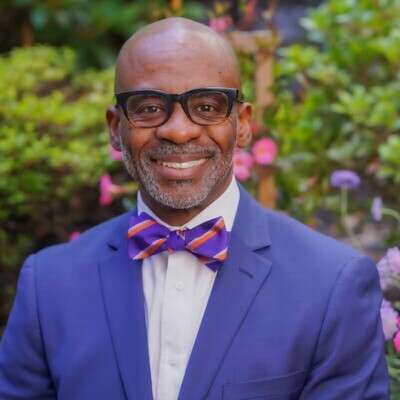By Kevin Gormely and Ian Collyer, Boyden global executive search
Preparing for interviews with a selection committee can be a daunting task, both as a candidate and a member of the committee. The pressure and intensity is often higher than standard interviews, and the added difficulty of juggling multiple opinions can make for a more complex decision-making process. How can you effectively prepare?
Recruiting at the executive level, we’ve conducted countless interviews in a selection committee setting. Here are our top tips to prepare for a selection committee interview process, as either a candidate or committee member.
For the Candidate
Before the interview
Understand the organization
Beyond a cursory glance at organization’s field, you should fully understand the current business climate and how the role you are looking to fill will make an impact.
Start simple
Review the organization’s website and identify where the emphasis is being placed within their operations. Check their social media feeds to find out what they pride themselves in (i.e. Are there any recent corporate social responsibility endeavours?).
Go deeper
If they publish thought leadership, see what topics are liable to reoccur and read through some of the literature. Look through financial reports: this doesn’t mean conduct an audit,but understand the direction in which the company is moving and have an idea of their bottom line.
Know who you are meeting
Understand each individual’s role and any other professional information from the company website, LinkedIn profiles and other professional means available.
Anticipate the direction of the meeting.
Consider your CV: are there gaps, either in terms of necessary experience for the role or between roles? Think about how to respond to the probing questions that are sure to follow.
Prepare answers
Try framing responses in the CAR format: challenge, action, result. This format is easy to follow and will enhance the clarity of your response. It will also provide the benefit of helping you keep your thoughts organized.
What’s next?
It’s always a good idea to talk to the search firm/consultant for feedback. When speaking with the recruiter and committee separately, maintain uniformity. Expect that any subtle inconsistencies between answers given will raise eyebrows.
If there is a second round interview, focus on “Why YOU over someone else?” As the process reaches the later stages, it’s likely that each candidate possesses most, if not all of the core characteristics in the committee’s ideal profile. Focus on what could potentially make you stand out.
Keep in mind this is a two-way process. Ensure the role is an absolute fit for you: ask questions that need to be answered to help make this decision. Not every interview will lead to an offer but it will always be an opportunity to learn something new about an organization (and yourself) and to make new connections.
During the interview
Clarity and confidence
Your preparation should allow you to be confident and relevant in your answers. Ask meaningful questions, both for your own benefit and to demonstrate your interest and understanding of the company.
Details matter
Maintain eye contact, give equal attention to all interviewers and look for visual cues. How is each interviewer responding to your answers? Use this to know when more or less detail is called for. Be open and transparent, but be wary of getting too relaxed and familiar in your responses.
Don’t be afraid to ask
Ask “Have I answered your question?” or briefly write down the question being asked of you to keep yourself on track. A well-constructed, clear answer will be the result and can make all the difference.
For the Committee
As a member of a selection committee, the onus is on you to play a role in the direction of the meeting itself. Staying organized, being cognizant of the meeting style and maintaining open dialogue among committee members are the most important features of an effective selection committee.
Criteria consensus is key
The most important initial step for any committee is to arrive at a definite consensus on what the role should entail. This defines what qualities a successful candidate will possess and directs the flavour of the interview questions to follow.
Review material and prepare questions
To prepare your questions, thoroughly review all candidate information. Focus on relevant experience, as well as any potential weaknesses a candidate may have against the ideal candidate profile. Present the questioning in an organized manner to help generate concise, relevant answers. The committee should discuss beforehand who will be responsible for which areas of the interview based on interest/experience in that facet of the profile. That being said, any member should feel free to ask follow-up questions as needed. This demonstrates a united spirit of the committee, which communicates a more positive front to the candidate.
Consider the meeting format
Selection committee interviews can be far more intimidating for a candidate than a one-on-one interview format. Resulting unease can distract from the potential strength or weakness of a candidate, hindering the committee’s decision. It will also degrade the experience of the eventual successful candidate.
Give thought to several aspects of the meeting. The first is simply seating arrangement. It is helpful to avoid a “hotseat” style arrangement, with the committee members pitted on one side of the table opposite the candidate. Aim to strike a balance between a rigid questioning structure and a more conversational flow. Key here is to maintain professionalism, but present a welcoming space.
Be present
Seeing perceived signs of disinterest from committee members can be one of the largest challenges to maintaining a welcoming, positive atmosphere. As a committee member, devote yourself to the time required and avoid distractions. Recognizing that full-day meetings are an arduous task, it’s helpful to space out interviews accordingly.
Keep an open dialogue
It’s common for a committee to find itself divided on its choice of candidate. This is more likely to happen if the committee has not firmly agreed to or properly weighted the competencies of the ideal candidate profile. If the committee has invested the time, energy and effort in agreeing on the candidate profile, division is less likely to occur. Maintaining an open dialogue between committee members throughout the process is extremely important, from the preparation to selection stages.
What’s next?
Be aware this is a search for the right fit, both from your perspective and the candidate’s. While not a sales pitch, committee members should be advocates for their own organization. It’s equally important to be open and honest about any potential job challenges the successful candidate might face, lest unexpected difficulties lead to an early departure after the fact.
Finally, selection committees can fall prey to the temptation of weighing the “feel” of a candidate interview too heavily. The committee needs to remain focused on its task of assessing the candidates against the ideal profile, relying on the data and evidence obtained from the interviews and the references—not solely on “impressions or observations” from the interview.
Follow Boyden: @BoydenCanada #BoydenView
This article originally appeared in WXN’s Spring 2016 issue of “The Opinion” magazine.
Kevin Gormely and Ian Collyer are both Partners at Boyden, global leader in executive search which has proudly served organizations and institutions for over 70 years. They are committed to excellence in leadership and value diversity as an essential force towards achieving this commitment.



